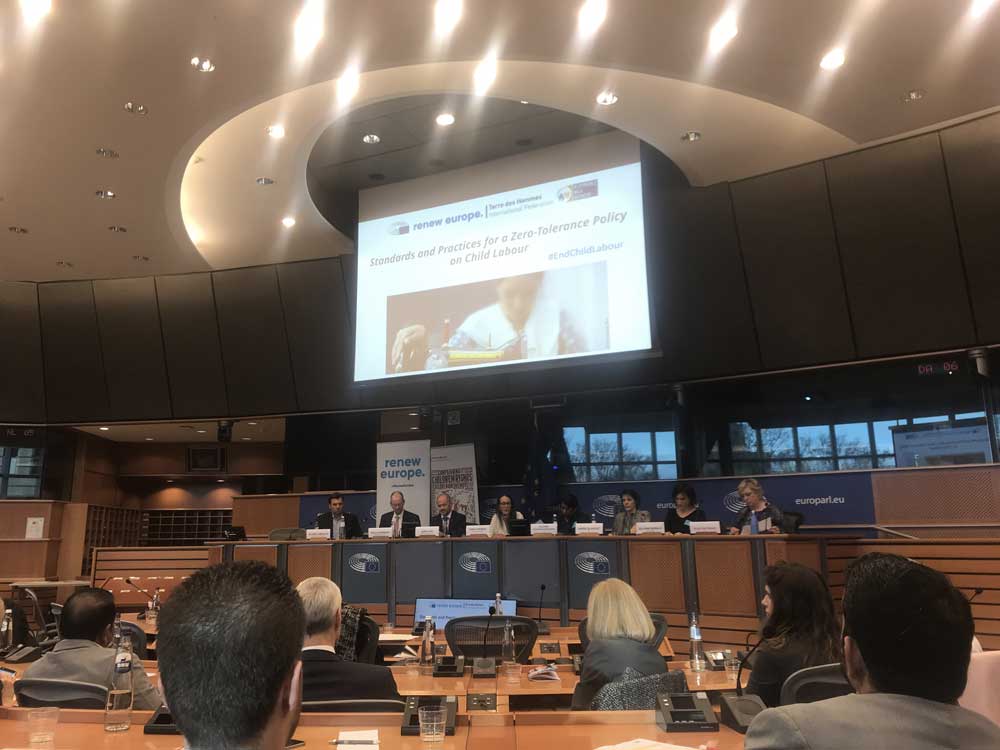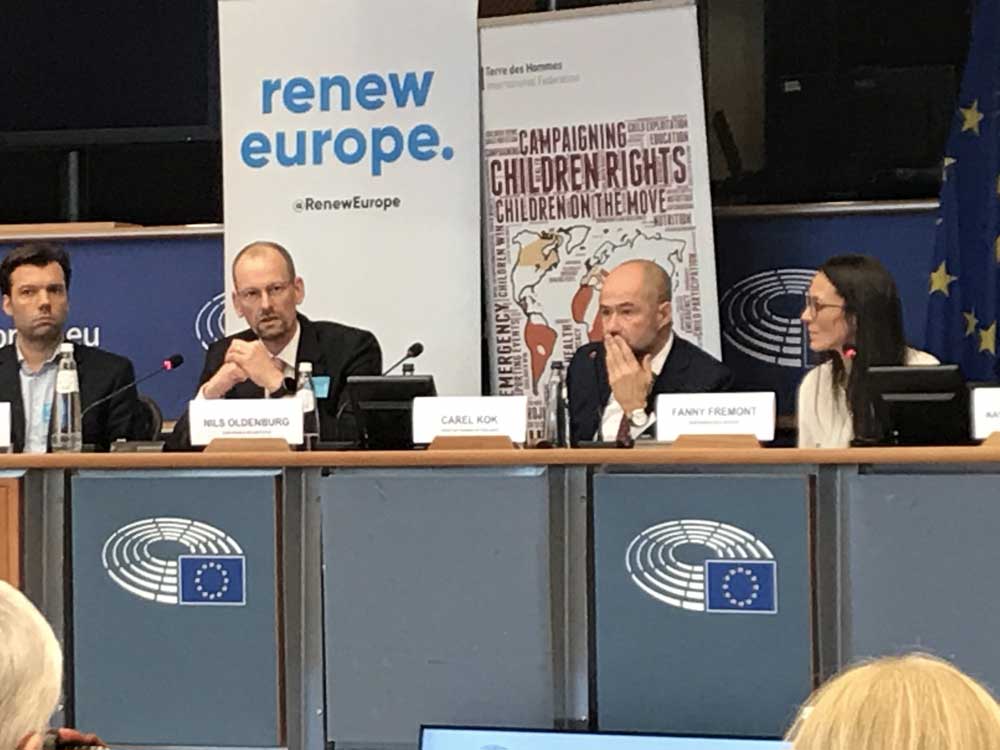
Between November 19th and November 26th the Responsible Mica Initiative (RMI) participated in two key events focused on human rights and child labor. The first event took place at the European Parliament the day before the 30th anniversary of the adoption of the UN Convention on the Rights of the Child (CRC) and was hosted by MP Hilde Vautmans in collaboration with RMI and Terre des Hommes International Federation. The following week, RMI took part in a constructive panel discussion at the annual UN Forum on Business and Human Rights in Geneva alongside Terre des Hommes Netherlands and the Kailash Satyarthi Children Foundation.
EP Parliament session
MEP Hilde Vautmans (Belgium – Open Vlaamse Liberalen en Democraten) welcomed participants with touching yet compelling words about her commitment to end child labor. She stated that more than 152 million children are still working, among which 72 million are involved in dangerous work and sexual exploitation. She made a plea for a “wake up call,” insisting on the importance of setting up a comprehensive legal framework to address this global crisis. Following Ms. Vautmans’ moving introduction, MEP Heidi Hautala (Finland – Vihreä liitto) shared her goal to harmonize human rights due diligence policies that are in place among various European countries. While emphasizing that “due diligence won’t be the silver bullet to solve child labor issues,” due diligence remains an essential step.
The introductory remarks were followed by a panel discussion, facilitated by Delphine Moralis, Secretary General at Terre des Hommes International Federation, which set the background for the discussion of child labor.
A second panel, organized around several key players of the fight against child labor and facilitated by Fanny Frémont, Executive Director of the Responsible Mica Initiative (RMI), explored in more detail ways to remedy this crisis.

UN Forum on Business and Human Rights
The 2019 meeting of the UN Forum on Business and Human rights hosted a panel on mica mining in India which included RMI Executive Director Fanny Frémont and other experts in the sector. The session offered case studies on multi-stakeholder collaboration over several years designed to eliminate child labor in the sector.
The session was facilitated by P. Nagasayee Malathy, Executive Director, Programmes, Kailash Satyarthi Children’s Foundation and was opened by moving testimony from Mohammad Manan Ansari, a youth rescued from mica mines, who emphasized the importance of allowing children to go to school and have dreams for their lives. He called on global agencies to support work in India and ensure a future for children who today work in mica mines.
Fanny Frémont explained RMI’s multi-stakeholder, impact oriented and holistic approach, and demonstrated how that approach is addressing global mandates – including those set forth in the UN Sustainable Development Goals, the UN Global Compact and the UN Guiding Principles on Business and Human Rights. Membership in RMI helps companies meet their due diligence obligations and implementation programs. Fanny Frémont also reminded the audience that RMI’s approach has been recognized as good practice by the International Labor Affairs Bureau of the US Department of Labor and also received an award for best practice at the UN Forum in 2018 as the most innovative approach to taking the UN principles from paper to practice.
RMI will continue to promote and engage in multi-stakeholder events such as those sponsored by the European Parliament and UN. They provide critical opportunities to raise the visibility of the child labor problem in the mica sector and generate interest and engagement among private sector members of the mica supply chain, government, multilateral global agencies and NGOs whose membership in RMI can continue to strengthen its programs.